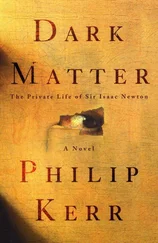Philip Kerr - A Man Without Breath
Здесь есть возможность читать онлайн «Philip Kerr - A Man Without Breath» весь текст электронной книги совершенно бесплатно (целиком полную версию без сокращений). В некоторых случаях можно слушать аудио, скачать через торрент в формате fb2 и присутствует краткое содержание. Год выпуска: 2013, Издательство: Quercus, Жанр: Триллер, на английском языке. Описание произведения, (предисловие) а так же отзывы посетителей доступны на портале библиотеки ЛибКат.
- Название:A Man Without Breath
- Автор:
- Издательство:Quercus
- Жанр:
- Год:2013
- ISBN:нет данных
- Рейтинг книги:4 / 5. Голосов: 1
-
Избранное:Добавить в избранное
- Отзывы:
-
Ваша оценка:
- 80
- 1
- 2
- 3
- 4
- 5
A Man Without Breath: краткое содержание, описание и аннотация
Предлагаем к чтению аннотацию, описание, краткое содержание или предисловие (зависит от того, что написал сам автор книги «A Man Without Breath»). Если вы не нашли необходимую информацию о книге — напишите в комментариях, мы постараемся отыскать её.
A Man Without Breath — читать онлайн бесплатно полную книгу (весь текст) целиком
Ниже представлен текст книги, разбитый по страницам. Система сохранения места последней прочитанной страницы, позволяет с удобством читать онлайн бесплатно книгу «A Man Without Breath», без необходимости каждый раз заново искать на чём Вы остановились. Поставьте закладку, и сможете в любой момент перейти на страницу, на которой закончили чтение.
Интервал:
Закладка:
‘Yes sir. Thank you. Colonel, since you mentioned the Mahatma, I have another question. Actually it was something my boss mentioned to me back in Berlin. About the Mahatma and his men.’
Ahrens nodded. ‘Ask it.’
‘Has anyone from the propaganda ministry ever been here?’
‘Here in Smolensk?’
‘No, here at the castle.’
‘At the castle? Why on earth would they come here?’
I shook my head. ‘It doesn’t matter. It wouldn’t surprise me if they’d been here to film all those Soviet POWs you told me about, that’s all. To help prove to the folks back home that we were winning this war.’
Of course, this wasn’t the reason I’d asked about the propaganda ministry, but I couldn’t see how I could explain my suspicions without calling the colonel a liar.
‘Do you think we’re winning this war?’ he asked.
‘Winning or losing,’ I said. ‘Neither one looks good for Germany. Not the Germany I know and love.’
Ahrens nodded. ‘There have been days,’ he said, ‘many days, when I find it hard to like what I am or what we’re doing, captain. I, too, love my country but not what’s being done in its name, and there are times when I can’t look my own reflection in the eye. Do you understand?’
‘Yes. And I recognize myself when I hear you talking treason.’
‘Then you’re in the right place,’ he said. ‘You hear as much as we do in the five hundred and thirty-seventh, then you’ll know that there’s plenty of treason talked in Smolensk. This might be one reason why the Leader is coming here on a morale-building visit.’
‘Hitler’s coming here to Smolensk?’
‘On Saturday. For a meeting with Von Kluge. That’s supposed to be a secret by the way. So don’t mention it, will you? Although everyone and his dog seems to know about it.’
Alone, with an entrenching tool in my hand, I took a walk around the Katyn Wood. I went slowly down a slope into a dip in the ground that seemed to be a natural amphitheatre and even slower up the other side, with my army boots sounding like an old horse eating oats as they crunched down in the snow. I don’t know what I was looking for. The frozen ground underneath the snow was as hard as granite and my futile attempts at excavation merely amused the crows. A hammer and chisel might have yielded better results. In spite of the birch cross, it was hard to imagine much had ever taken place in that wood. I wondered if really anything of significance had happened there since Napoleon. Already it felt like I was on a wild goose chase. Besides, I cared little for the Poles. I’d never liked them any more than the English who, apparently able to ignore the role that perfidious Poland had played during the Czech crisis of 1938 – it wasn’t just the Nazis who had marched in there, it was the Poles, too, in pursuit of their own territorial claims – had stupidly come to the aid of Poland in 1939. The few bones I had seen back in the castle were evidence of nothing very much. A Russian soldier who had died in his foxhole perhaps and later been found by a hungry wolf? It was probably the best thing that could have happened to the Ivan given the awful situation Ahrens had described at Camp 126. Starving to death was easy to do in a world policed and patrolled by my own tender-hearted countrymen.
For half an hour I blundered around, getting colder. Even wearing gloves my hands felt frozen and my ears ached as if someone had hit them with the entrenching tool. What on earth were we doing in this desolate permafrosted country, so very far from home? The living space Hitler craved so much was fit only for the wolves and crows. It made no sense at all, but then very little of what the Nazis did made much sense to me. But I doubt that I was the only one who was beginning to suspect that Stalingrad might have the same significance as the retreat of Napoleon’s Grand Army from Moscow: surely everyone except Hitler and the generals knew we were finished in Russia.
In the distance close to the road to Vitebsk a couple of sentries pretended to look the other way, but I could hear their laughter quite clearly: there was something about the Katyn Wood that had a curious effect on sound, holding it within the line of trees like water in a bowl. But their opinion just made me more determined to find something. Being bloody-minded and proving other people wrong is what being a detective is all about. It’s one of the things that made me so popular with my many friends and colleagues.
Scraping at the snow and occasionally reaching to pick something up, I found an empty packet of German cigarettes, a buckle off a German carbine sling, and a piece of twisted wire. Quite a haul for half an hour’s work. I was just about to call it a day when I turned too quickly on my heel, slipped and fell down the slope, twisting my knee in a way that left it feeling stiff and painful for days afterwards. I swore loudly, and still sitting in the snow picked up my crusher and hauled it back on my head. A glance at the sentries near the road revealed that they had their backs turned squarely to me, which probably meant that they didn’t want to be seen laughing at the SD officer who’d fallen on his arse.
I put down my hand to push myself up, which was when I found an object that was only part frozen to the ground. I pulled hard and the object came away in my hand. It was a boot – a riding boot of the kind worn by an officer. I put the boot to one side and, still sitting, set to work scraping at the frozen ground on either side of me with the entrenching tool. A few minutes later I had a small metallic object in my hand. It was a button. I pocketed the button and recovering the boot, I stood up and limped back to the castle, where I washed my little find very carefully in warm water.
On the face of the button was an eagle.
In the afternoon I interviewed the Susanins, the Russian couple who helped to look after the 537th at Dnieper Castle. They were in their sixties and as wary and unsmiling as an old sepia photograph. Oleg Susanin wore a black peasant’s blouse with a belt, dark trousers, a grey felt hat and a longish beard; his wife looked not dissimilar. Since their German was better than my Russian but with a vocabulary that was restricted to food, fuel, laundry and bees, Ahrens had arranged for me to have the services of a translator from group headquarters – a Russian called Peshkov. He was a shifty-looking fellow with round pince-nez glasses and a Hitler moustache. He wore a German army greatcoat, a pair of German officer’s boots, and a red bow-tie with white polka-dots. Later on, Ahrens told me he’d grown the moustache in order to look more pro-German.
‘That’s a matter of opinion,’ I said. Peshkov spoke excellent German.
‘It’s an honour to be working for you, sir,’ he said. ‘I’m entirely at your service while you’re in Smolensk. Day or night. You have only to ask. You can usually leave a message for me with the adjutant, sir. At Krasny Bor. I make myself available there every morning at nine o’clock precisely.’
But while Peshkov was quite fluent in German, he never smiled or laughed and was completely different from the Russian who had accompanied him to Dnieper Castle from group HQ at Krasny Bor, a man called Dyakov, who seemed to be a sort of local hunting guide and general servant for Von Kluge – his Putzer .
Ahrens explained that German soldiers had rescued Dyakov from an NKVD murder squad. ‘He’s quite a fellow,’ said Ahrens, as he continued to introduce me to the two Russians. ‘Aren’t you, Dyakov? A complete rogue, probably, but Field Marshal von Kluge seems to trust him implicitly, so I’ve no choice but to trust him, too.’
‘Thank you, sir,’ said Dyakov.
‘He seems to have a soft spot for Marusya, one of our kitchen maids, so when he’s not with Von Kluge he’s usually here, aren’t you, Dyakov?’
Читать дальшеИнтервал:
Закладка:
Похожие книги на «A Man Without Breath»
Представляем Вашему вниманию похожие книги на «A Man Without Breath» списком для выбора. Мы отобрали схожую по названию и смыслу литературу в надежде предоставить читателям больше вариантов отыскать новые, интересные, ещё непрочитанные произведения.
Обсуждение, отзывы о книге «A Man Without Breath» и просто собственные мнения читателей. Оставьте ваши комментарии, напишите, что Вы думаете о произведении, его смысле или главных героях. Укажите что конкретно понравилось, а что нет, и почему Вы так считаете.












